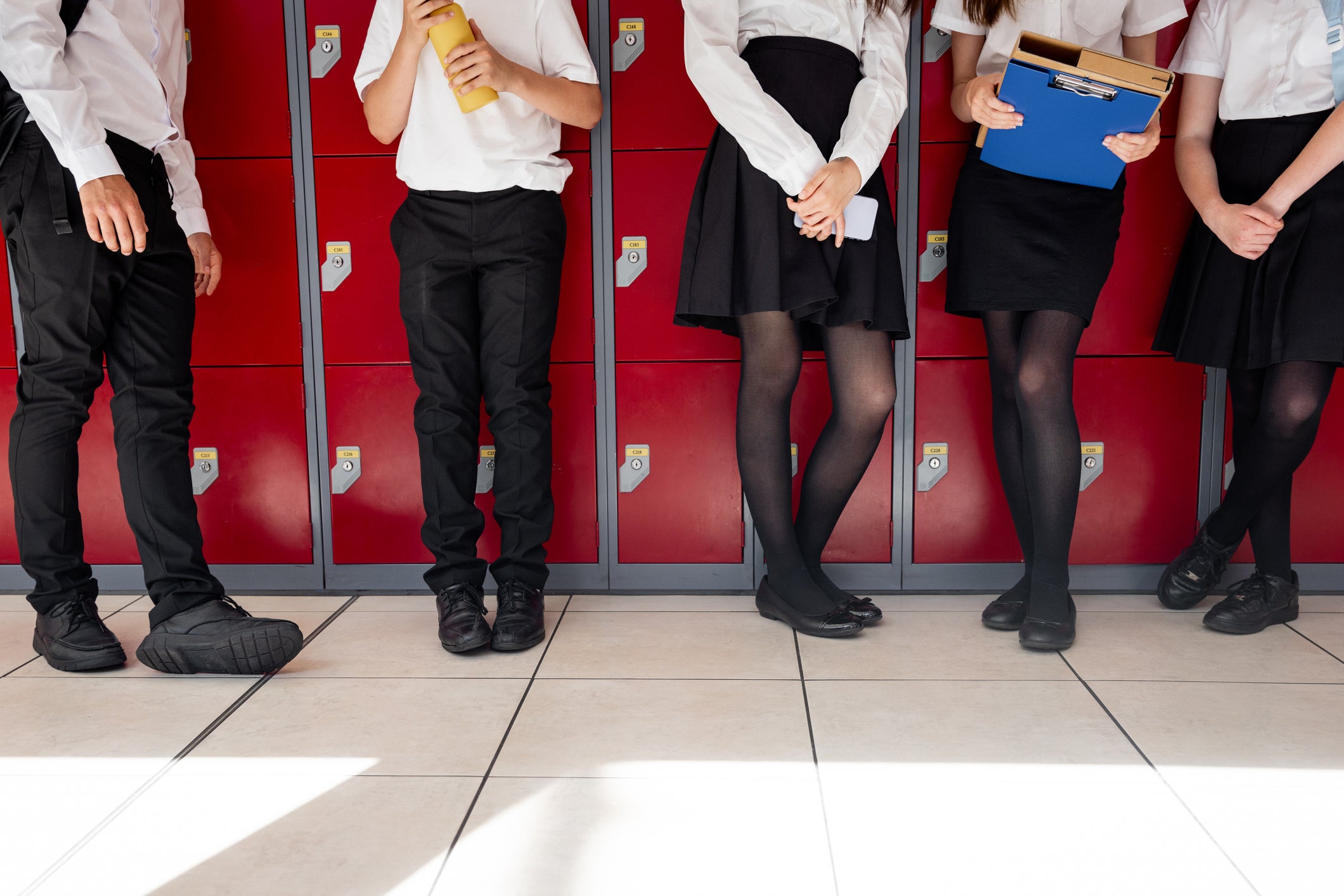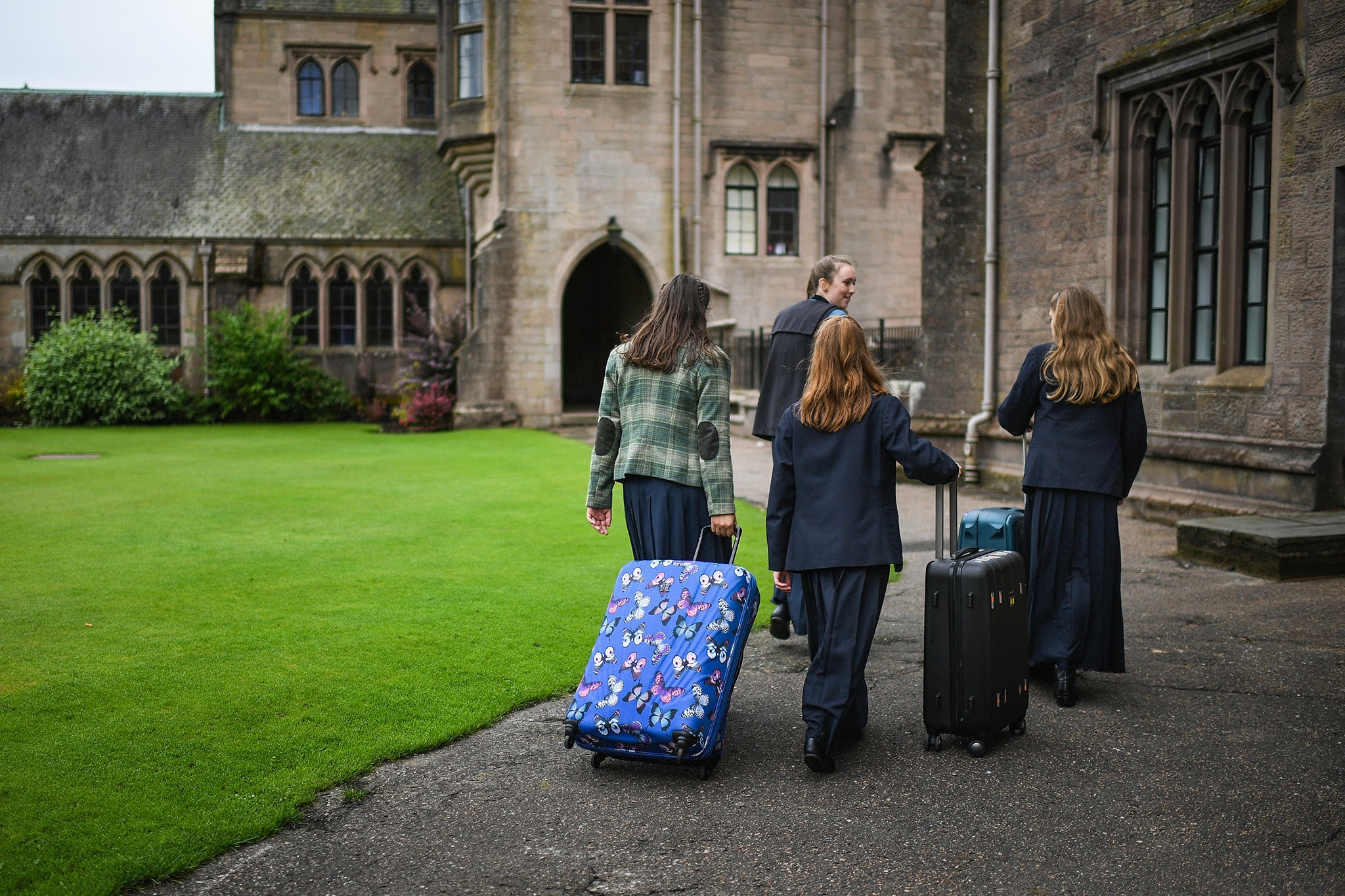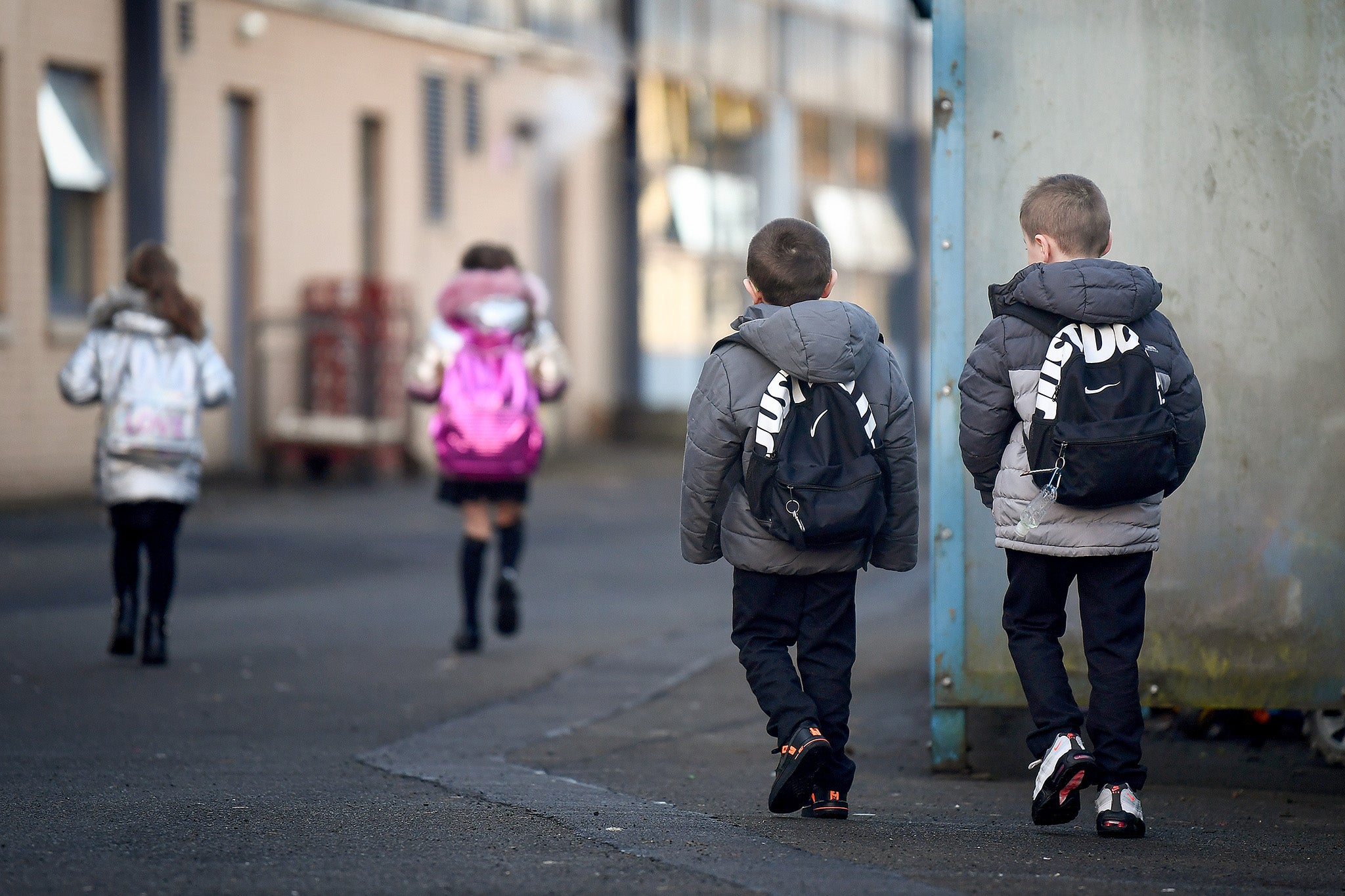Meet the parents taking the government to court over VAT on private schools
It was the manifesto promise made a reality in the first Labour Budget for 14 years, but will a legal challenge from anxious parents force a U-turn? Zoë Beaty reports


They don’t understand,” one parent, Kathryn, is telling me. For her, Rachel Reeves’ long-awaited first Budget yesterday was a nail in the coffin. Over the last year, Kathryn has been supporting campaign group Education not Taxation, a collective of parents with children in private schools who are challenging Labour’s policy to tax private school fees.
“It’s hatred and bitterness and a lack of understanding about the private sector; it’s jealousy, it’s envy,” she says of the proposal. “Actually what we’re going to do is damage both sectors, and damage education overall, because the whole system of private schools will slowly have to fold.
“I get really angry about it for the public, who lap it up,” adds Kathryn whose son will leave his £20,000 per year school in Norfolk to start state school on Monday. “They think it’s all wealthy people who are buying an advantage and wearing boaters at school. I mean, what a ridiculous thing that is – we’re not all Etons and Harrows, that’s the minority.”
Until now private schools have been eligible for tax breaks, much like charitable business relief, so Reeves’ Autumn Statement, which confirmed that, from 1 January 2025 they’ll incur the standard tax rate of 20 per cent, was never going to be popular. Tax made on fees – more than £9bn, according to Reeves’ speech – will then be reinvested into improving state education, which accounts for roughly 93 per cent of the entire system.
For many, it’s a morally righteous step to take towards the left – socially, private schooling is largely agreed to be the root of inequality in Britain; politically, this was a policy that marked out Labour’s territory away from the Conservatives in a big way.
But parents facing a stark rise in bills next year say it’s a bit more personal than that.
The Education not Taxation campaign, who have more than 23,000 members on their Facebook page alone, claim the proposal has already caused huge undue anxiety and disruption, both to them and their children. They’re not “rich”, many insist – they’re simply average people working very hard to send their kids to above-average schools. Swathes say they chose, or had to choose, private education to meet their children’s special education needs (SEN), such as ADHD or dyslexia.
“It just makes me really, really angry,” says Johanna*, an NHS nurse whose 15-year-old goes to school in northwest England. She’s withholding her identity to protect her son, who is adopted. He was badly bullied in state school, which left her no option but to homeschool him until they found the small independent school he attends now, which costs just over £3,000 per term. “It’s going to cost the government more to educate him in a state school because he needs a teaching assistant with him all the time.
“When I speak to other parents, everyone is panicking because their children aren’t coping in these large, hostile [state school] environments.” Johanna, whose son wishes to be a doctor, added, “I’m not a millionaire, I’m not posh. I’m going to have to take out a loan or remortgage if it goes up any more.”

Some families are going even further. In September, Alexis Quinn, from Kent, whose 12-year-old daughter is autistic, is currently attempting to raise £350,000 to take legal action against the government over the decision.
Children whose education, health and care plan (EHCP) states that they require a council-funded place in a private school for specialist support will not be impacted by VAT, the government said – yet Quinn’s daughter was turned down. More than 1.2 million children in England have SEN support across the education system; 4.8 per cent of them have EHCP plans which afford them additional funding. In the private sector, 5.7 per cent of children have an EHCP.
Three private Christian schools, along with a group of parents, are also preparing for a legal challenge. The schools – Emmanuel School in Derby, the Branch Christian School in Yorkshire and The King’s School in Hampshire – claim that the tax breaches human rights laws and “will unlawfully discriminate against faith-based schools and families by making Christian education unaffordable”.
Unsurprisingly, the argument that private education, which costs on average £20,000 per year, could be rendered “unaffordable” hasn’t been met with much sympathy from the wider public, where the average UK pre-tax salary stands at just over £35,000. And, the thing is, private schools are no strangers to markups, as Wes Streeting pointed out last week.

“You have hiked your fees up with inflation-busting increases year after year after year since 2010, and now you’re pleading poverty,” he told LBC. “If you’re worried about whether children in your schools will continue to access your schools, you will have to cut your cloth in the way that state schools have had to do.” According to FactCheck, private school fees have seen a 75 per cent increase since 2000 – last year was 8 per cent, due to changes in the teacher’s pension scheme and inflation. Yet the number of pupils attending them has remained steady.
Streeting added, “I’m sure they can take steps to mitigate against children being forced to drop out if they’re the good charities they say they are.”
Education not Taxation tells me that their plight is strictly “parental, not political”. Their spokesperson (who doesn’t wish to be named) admitted that, “rightly or wrongly, it feels like, as parents, we're at the heart of a culture war or a class war. And so it's created a very toxic environment.”
For years social mobility has been all but taken off the table for the average child yet the link between lower socio-economic background and adult outcomes is still stronger in the UK than in any other developed country. An in-depth study by KPMG in 2022 showed that parental occupation (e the occupation of the highest earner in your household at age 14) was still the most robust indicator of someone’s future success and that has consequences for everyone as unequal societies have lower levels of productivity, mental health and life expectancy.

The idea of taxing the privilege of private education puts a spotlight on the whole system. This is the battle of the haves and have-nots, and the self-righteous defences of both sides are more visible than ever.
At one point during our conversation, Kathryn points out that she “knows parents with children at state schools who’ve gone on two or three week holidays to Costa Rica, who’ve gone to Mauritius.” She’s “not judging them”, she says. Her family went on a one week holiday to the Mediterranean and spent a week in Cornwall and Devon this year – “that was our entire holiday for the year”, she adds. “But the point is to say we're taxing the wealthier people through the private system is nonsense, because there's lots of us that are wealthy.
“There's plenty of people in the state system who have very expensive cars or holidays or whatever. You know, it's a choice for lots of people, and they're actually attacking the choice here.”
Kathryn is right that choice is key, but there’s little acknowledgement that choice is something afforded by financial security. Really, what it all comes down to is a group of parents feeling cheated by society for lack of access to funds, and deprived of opportunities, denied systems that they believe greatly benefit their children – much like the 93 per cent of children who attend state school, then.
After months of anxiety from parents who have their children in the private system, Rachel Reeves’s Budget shows their arguments haven’t changed her mind. And Streeting has doubled down on the policy even more – signalling this cabinet isn’t for turning. Whether a forthcoming legal battle forces their hand remains to be seen.





Join our commenting forum
Join thought-provoking conversations, follow other Independent readers and see their replies
2Comments